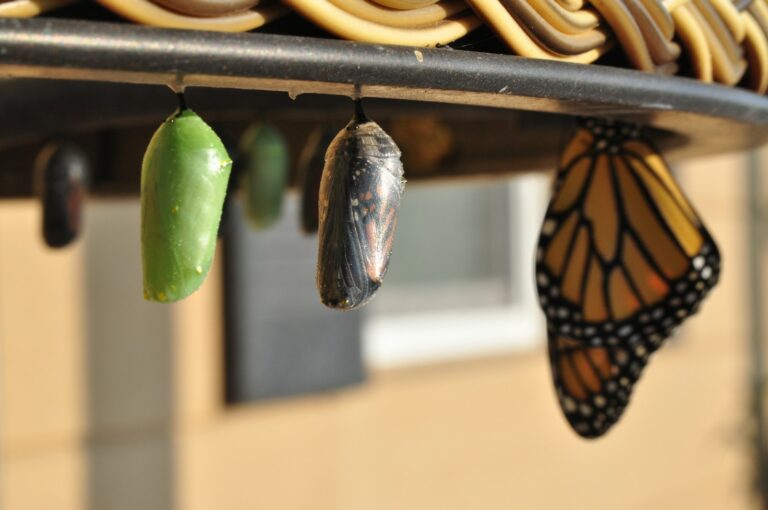Say Goodbye to Headaches: Natural Remedies for Pregnancy Pains
Key Takeaways:
– Headaches are a common discomfort during pregnancy.
– Natural remedies can provide relief without harmful side effects.
– Exploring other holistic solutions can help manage and prevent pregnancy headaches.
– It’s important to prioritize self-care and consult with healthcare professionals if needed.
Pregnancy is a beautiful journey, but it often comes with its fair share of challenges. One of the most common discomforts experienced by expectant mothers is headaches.
While reaching for over-the-counter medications may seem tempting, it’s essential to explore safe and holistic alternatives that prioritize both you and your baby’s well-being.
So here’s the question: Are there natural remedies for headaches during pregnancy that can provide effective relief without any harmful side effects?
Well, the answer is a resounding YES!
Now, let’s dive deeper into the world of natural remedies for pregnancy headaches and discover a range of holistic solutions that can help you bid farewell to those throbbing pains.

Natural Remedies for Headache Relief
These safe headache remedies for pregnant women offer holistic headache relief during pregnancy, allowing you to alleviate discomfort without the use of over-the-counter medications.
- Alternating hot and cold packs on the head can help relax tense muscles and reduce inflammation. The warmth from the hot pack can soothe headaches caused by stress or tension, while the cold pack can numb the area and provide relief from inflammation.
- Tennis ball therapy is another effective natural remedy. By placing two tennis balls under the skull and gently rocking the head, you can massage tense areas and relieve headache pain.
- Staying hydrated is crucial in managing and preventing headaches during pregnancy. Drink plenty of water and replace caffeinated beverages with herbal teas, which can help alleviate tension headaches.
- Incorporating lavender and peppermint oils into your routine can provide soothing relief from stress-induced headaches. You can inhale the aroma directly or dilute the oils and apply them topically to your temples or neck.
- Maintaining good posture and practicing relaxation techniques like yoga or meditation can help prevent and reduce the frequency of headaches during pregnancy. These holistic approaches promote overall well-being and can contribute to headache relief.
By utilizing these natural remedies for headaches during pregnancy, you can find safe and effective holistic headache relief. These remedies are gentle on your body and provide a natural alternative to traditional medications.

Remember to always consult with your healthcare provider before incorporating any new treatments or remedies during pregnancy. They can offer personalized advice and ensure that the chosen remedies align with your specific needs.
Understanding Postpartum Headaches
While headaches during pregnancy can be common, postpartum headaches can also occur after giving birth. These headaches are usually not dangerous but can be a sign of underlying health issues. Postpartum headaches can be caused by various factors, including:
- Hormonal changes
- Stress
- Exhaustion
- Dehydration
- Breastfeeding
- Allergies or sinus issues
- Eye strain
- Migraines
It’s important to pay attention to the severity and frequency of your postpartum headaches. While most postpartum headaches are harmless and can be managed with lifestyle changes and over-the-counter pain relievers, severe headaches could be a sign of complications like:
- Spinal or postdural puncture headaches
- Preeclampsia
- Other serious conditions
If you experience severe or frequent headaches after childbirth, it’s vital to consult with your healthcare provider to determine the cause and appropriate treatment. They can assess your symptoms and provide you with the necessary guidance and support.

Types of Postpartum Headaches
| Type | Cause |
|---|---|
| Tension headaches | Stress, muscle tension in the head and neck |
| Migraines | Changes in hormone levels, triggers like stress, lack of sleep, or certain foods |
| Spinal or postdural puncture headaches | Injury to the spinal cord or tissues, leakage of spinal fluid |
| Preeclampsia headaches | High blood pressure during pregnancy, affects blood vessels in the brain |
Managing Postpartum Headaches
If you’re experiencing postpartum headaches, there are several ways to manage and alleviate the pain.
Resting in a dark and quiet room, staying hydrated, eating regular meals, and having a little caffeine can help provide relief. Using warm or cold compresses on the head, practicing relaxation techniques, and asking for help from friends or family members can also help manage postpartum headaches.
For more severe headaches, over-the-counter pain relievers like acetaminophen or ibuprofen may be recommended, but it’s important to consult with your healthcare provider, especially if you’re breastfeeding. They can suggest safe and appropriate pain relief options that won’t harm you or your baby.
Management Tips for Postpartum Headaches:
- Rest in a dark and quiet room
- Stay hydrated
- Eat regular meals
- Have a little caffeine
- Use warm or cold compresses on the head
- Practice relaxation techniques
- Ask for help from friends or family members
Safe Pain Relief Options
For severe headaches, over-the-counter pain relievers like acetaminophen or ibuprofen may be recommended. However, it is crucial to consult with your healthcare provider before taking any medication, particularly if you are breastfeeding. They can guide you in choosing safe and appropriate pain relief options that won’t harm you or your baby.
Medical Advice for Postpartum Headaches
If your postpartum headaches persist, worsen, or are accompanied by other concerning symptoms, it’s important to seek medical attention. Your healthcare provider can evaluate your condition, determine the cause of your headaches, and recommend appropriate treatment options.

Conclusion
When it comes to headaches during pregnancy and postpartum, natural remedies can provide safe and effective relief. From using the Omumsie Headache Soother Balm to incorporating lifestyle changes like hydration, rest, and stress reduction techniques, there are many options available for expectant and new moms.
It’s important to listen to your body, seek medical advice when necessary, and prioritize self-care during this special time in your life. By choosing natural remedies and making simple adjustments to your routine, you can say goodbye to headaches and enjoy a more comfortable pregnancy and postpartum experience. Remember, taking care of yourself is just as important as taking care of your little one.
So, embrace the power of natural headache remedies during pregnancy and find headache relief as a new mom. By implementing these safe and holistic approaches, you can minimize the discomfort of headaches without relying on medications that may pose a risk to you and your baby. Take charge of your well-being and savor every moment of this incredible journey into motherhood.
FAQ
Can I use over-the-counter headache medications during pregnancy?
It’s best to avoid over-the-counter medications during pregnancy unless recommended by your healthcare provider. There are natural remedies that can provide safe relief from headaches.
What is the Omumsie Headache Soother Balm made of?
The Omumsie Headache Soother Balm is made with all-natural ingredients including lavender, peppermint, and sandalwood oils.
How can I relieve headaches during pregnancy naturally?
Natural remedies for headache relief during pregnancy include using the Omumsie Headache Soother Balm, alternating hot and cold packs, tennis ball therapy, staying hydrated, using lavender and peppermint oils, practicing good posture, and relaxation techniques like yoga or meditation.
What causes postpartum headaches?
Postpartum headaches can be caused by hormonal changes, stress, exhaustion, dehydration, breastfeeding, allergies or sinus issues, eye strain, and migraines.
When should I seek medical attention for postpartum headaches?
If your postpartum headaches are severe, frequent, or accompanied by other symptoms, it’s important to consult with your healthcare provider to rule out any underlying health issues.
How can I manage postpartum headaches?
Managing postpartum headaches involves resting in a dark and quiet room, staying hydrated, eating regular meals, using warm or cold compresses, practicing relaxation techniques, and asking for help from friends or family members. Over-the-counter pain relievers like acetaminophen or ibuprofen may be recommended, but it’s important to consult with your healthcare provider, especially if you’re breastfeeding.







